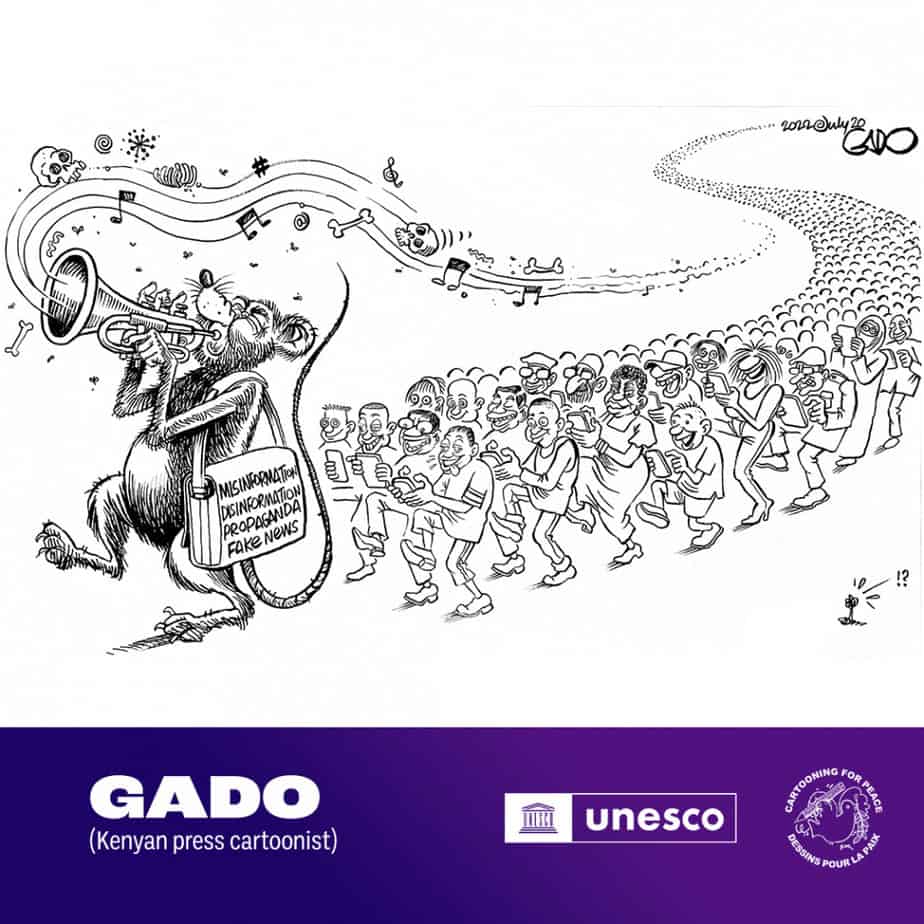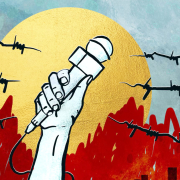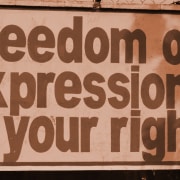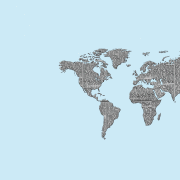|
Getting your Trinity Audio player ready...
|
It’s been 30 years since the UN General Assembly proclaimed 3 May as an international day for press freedom.
In those 30 years, journalists have faced an increasing barrage of threats, says UN Secretary-General António Guterres, in his message for World Press Freedom Day (WPFD) 2023. “Journalists and media workers are directly targeted on and offline as they carry out their vital work. They are routinely harassed, intimidated, detained, and imprisoned.”
At least 67 media workers were killed in 2022, says Guterres — “an unbelievable 50% increase over the previous year. Nearly three quarters of women journalists have experienced violence online, and one in four have been threatened physically.”
This year’s theme is Shaping a Future of Rights: Freedom of expression as a driver for all other human rights. The right to freedom of expression is enshrined not only in article 19 of the Universal Declaration of Human Rights but also in article 16, chapter 2 (the bill of rights) of South Africa’s Constitution, and in many constitutions around the world.
“This year’s special 30th anniversary celebration of World Press Freedom Day,” says Unesco, “is a call to recentre press freedom, as well as independent, pluralistic, and diverse media, as necessary key to the enjoyment of all other human rights.”
All freedom depends on press freedom
WPFD is therefore intended to be an opportunity to put a strong focus on freedom of expression within the overall human rights agenda – because the right to freedom of expression is a prerequisite and a driver to the enjoyment of all other human rights.
“This day highlights a basic truth: all our freedom depends on press freedom,” says Guterres. “Freedom of the press is the foundation of democracy and justice. It gives all of us the facts we need to shape opinions and speak truth to power. And as this year’s theme reminds us, press freedom represents the very lifeblood of human rights.”
But in every corner of the world, he adds, freedom of the press is under attack. This is seen every day in the disinformation and hate speech that flies around all platforms.
Furthermore, he says, the increased concentration of the media industry into the hands of a few, the financial collapse of scores of independent news organizations, and an increase of national laws and regulations that stifle journalists are further expanding censorship and threatening freedom of expression.
“On this and every World Press Freedom Day, the world must speak with one voice. Stop the threats and attacks. Stop detaining and imprisoning journalists for doing their jobs. Stop the lies and disinformation. Stop targeting truth and truth-tellers.”
No meaningful democracy without a free press
“Freedom of the press is the cornerstone of democratic society,” says Unesco Director-General Audrey Azoulay. “Without a debate of ideas, without verified facts, without diversity of perspectives, democracy is a shadow of itself.”
A free press holds power to account, fights for the truth, and empowers voters to make their mark with informed authority.
A free press allows residents to receive reliable information about the state of the nation, thereby enabling free and open dialogue about developments and situations, and if and how they should change.
A free press is also able to do its important work without influence or fear of retribution from the state or other powerful entities or people. This right also applies to any entity, whether an individual citizen or an organisation or publication. Needless to say, the fight against corruption depends on this freedom to uncover and reveal information.
Released in March 2022, Unesco’s global report on world trends in freedom of expression and media development for 2021/2022, raised alarms about the decline in press freedom worldwide. Drawing on information from 144 countries for its report, the organisation revealed that between 2016 and 2021, 85 % of the world’s population suffered an erosion of press freedom in their country.
The report also identified three major challenges inhibiting access to information: the safety of journalists; the regulation of online speech and the functioning of digital gatekeepers; and the economic viability of the media.
Reporters Without Borders (RSF) and Freedom House, who both regularly release indices analysing press freedom, have found the same thing. RSF’s 2022 World Press Freedom Index highlights the catastrophic effect of disinformation, propaganda wars, and polarisation within societies and countries and within the media itself, on freedom of expression.
Freedom House, meanwhile, in its Freedom on the Net 2022 report, found that global internet freedom shrank for the 12th consecutive year, and in their bid to seize power of the web, authoritarian and democratic state alike are placing human rights on a finely balanced line that could topple at any moment.
“It is exactly to counter these critical situations and threats,” says Unesco, “that press freedom, safety of journalists, and access to information take centre stage.”
As the world enters the final stretch for achievement of the Sustainable Development Goals, and for the fulfilment of commitments made by every UN member state to safeguard the planet’s future, “let us engage together to protect press freedom, reaffirm the vital importance of freedom of expression, and shape a future where human rights are at the centre of decision-making at the global, regional, and national level.”









